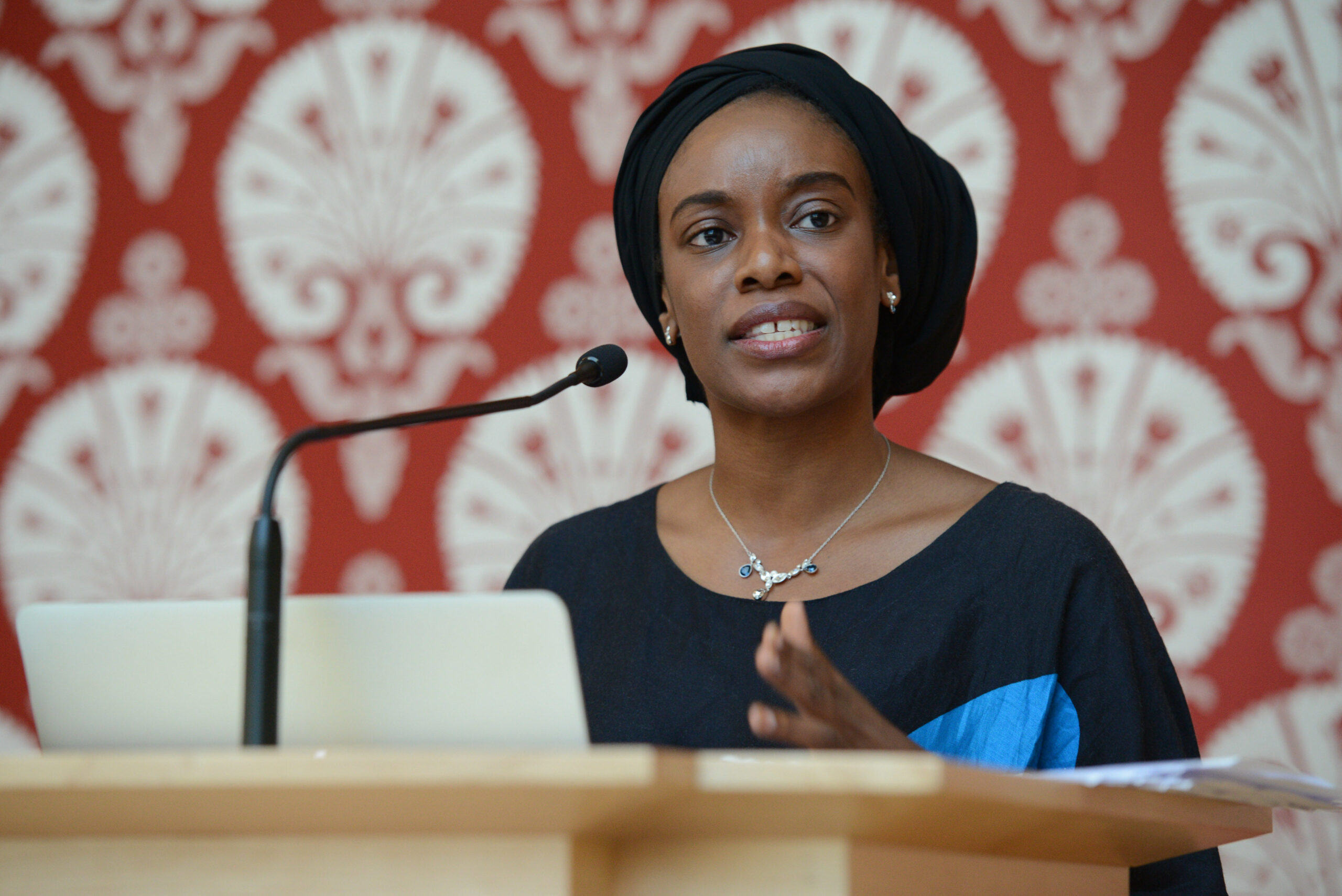While reporting in Africa, award-winning journalist Chika Oduah has faced her fair share of influence from Western media outlets.
[[{“fid”:”4451″,”view_mode”:”default”,”fields”:{“format”:”default”,”field_file_image_alt_text[und][0][value]”:””,”field_file_image_title_text[und][0][value]”:””},”type”:”media”,”link_text”:null,”attributes”:{“height”:”2403″,”width”:”3600″,”style”:”width: 400px; height: 267px; margin-left: 10px; margin-right: 10px; float: right;”,”class”:”media-element file-default”}}]]
By Alex Karageorgos, for the International Reporting Bureau at Humber College
Reporting from her homeland, Nigerian-born freelance journalist and photographer Chika Oduah was given strict guidelines by her Western-based photo editor. Shoot landscape and action photographs only.
She was also instructed to make sure the subject does not smile.
The problem was the subject of her story, 8-year-old Jummai Joshua, greeted the camera with big smiles, shy grins, and rambunctious laughter. This was unexpected from a little girl at a refugee camp in the northeastern Nigerian city of Yola who had lost both her parents.
“When it comes to reporting on Africa, historically and in modern day times, it’s always one-dimensional,” said Oduah, visiting Toronto under sponsorship of the Aga Khan Foundation. “There is very little fleshing out of characters. The African story is about suffering, period.”
Speaking to J-Source before her presentation, Oduah said that in the face of the shrinking footprint of traditional foreign correspondents, locally based journalists offer a valuable resource for African coverage, even if the message isn’t always, “if it bleeds, it leads.”
“I understand why a Western media outlet would want to use their journalists, but it’s not about looking for other expats to hang out with,” said Oduah. “It’s about trying to find people who are from the local cultures.”
Oduah, who was born in Nigeria, raised in Atlanta, and moved back said that with 250 ethnic groups in Nigeria, there is a need for indigenous reporters such as herself to amplify local voices and tell the whole story.
She said editors overseas often prod her to reinforce preconceived notions about African life so that their audiences can relate.
As an example, she cited her coverage of displaced Nigerians headed back to vote in the recent presidential election in Chibok, where 276 schoolgirls were kidnapped by Boko Haram in April of last year. The focus of her report was on efforts made by government officials to convince people that polling stations in Chibok would be safe. Her editor chose to shift the focus from the safety angle in favour of the rebel group instead.
“I was trying to show that Boko Haram is not just going around destroying Nigeria’s military, they’re really having an impact on the civilian population and that’s what needs to be told,” said Oduah. “Those little nuts of community life have really been pulled out with this insurgency.”
Oduah said she pitches many non-Boko Haram stories, but rarely are they picked up outside the continent, due to the dominance of the headlines by the Islamic rebels. From her experience, doom, disease and death are just a few of the terms weaved into narratives more often than not.
“Every day, I must make a conscious decision not to be part of the media machine that is still churning out a skewed and dark portrayal of Africa,” said Oduah.
Photo courtesy of Alnoor Meralli.

